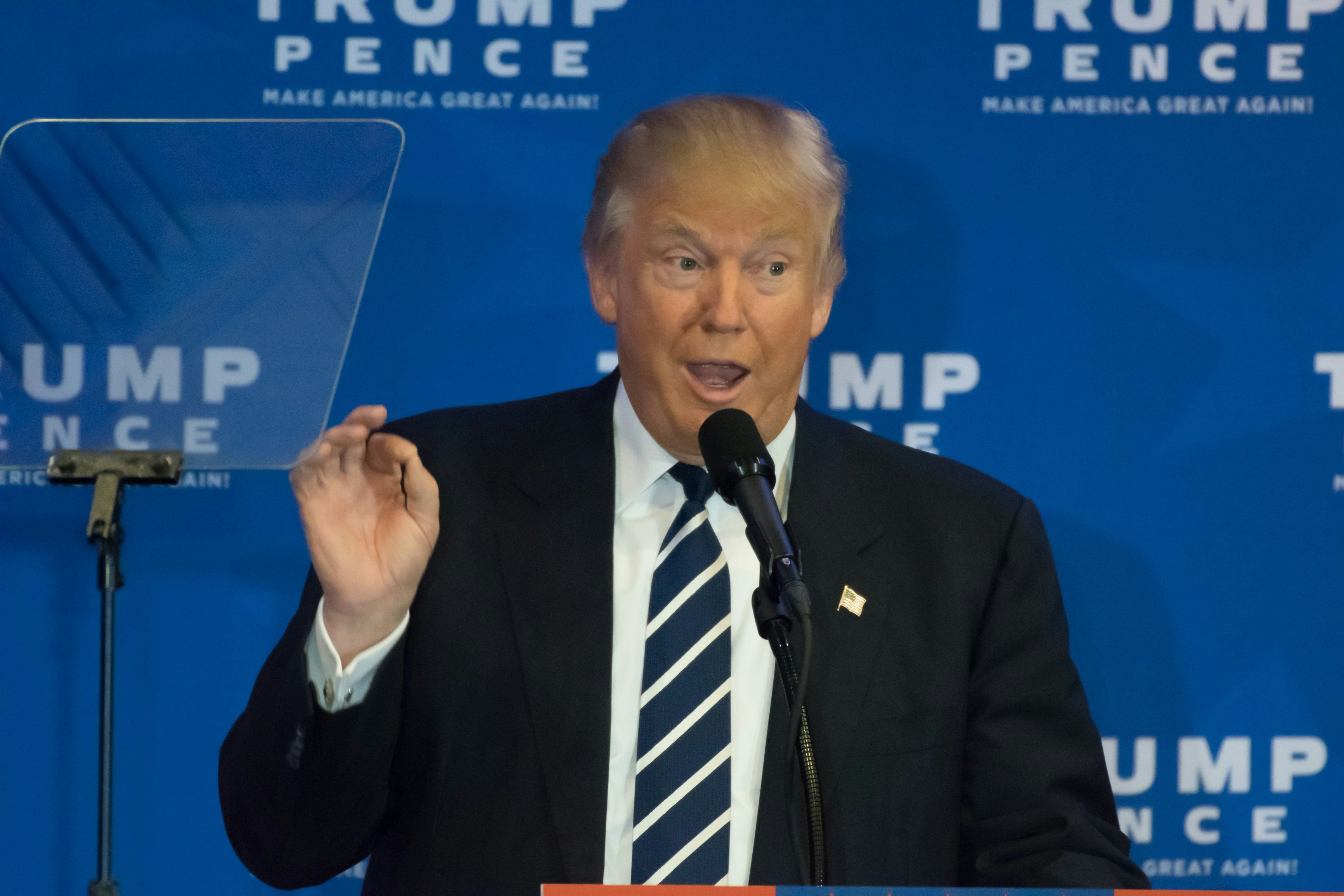After Donald Trump was elected president of the United States last night, global stock markets went on a roller coaster ride and are expected to remain volatile for the foreseeable future. For luxury companies in particular, a big part of how they fare will come down to whether or not Trump follows through on his vows to take a protectionist stance on trade with China.
Trump’s victory “appears to be a clear negative for luxury goods stocks,” wrote Exane BNP Paribas Managing Director of Global Luxury Goods Luca Solca in an investor note on the election’s impact on luxury, saying that its effects on emerging market economies such as China would play an outsize role in brands' stock price fluctuations. The reason outlined is pretty clear—Trump's stated plan to impose a 45 percent tariff on imports from China would dent China’s growth, prompting “higher financial and economic tensions,” and as a result, lower consumer confidence and luxury demand in China, one of the world's most important luxury markets.
Solca lists demand from China and emerging markets as one of the three main pillars that luxury brands depend upon for solid stock market performance, as well as the “wealth effect” and a strong U.S. dollar. The paper predicts that a lower U.S. dollar and higher interest rates will have a "double whammy" effect on luxury goods companies. Liquidity's “flow to the USA,” and away from emerging markets would end up "exacerbating financial issues in China and all over the world."
Trump also said he plans to label China a “currency manipulator.” The RMB slightly gained in value after the election, according to Bloomberg, and this year the Chinese government has been trying to prevent a decline in the yuan to discourage rich Chinese investors from rapidly moving their money out of the country.
American exports to China’s consumer market could suffer as well if a “trade war” is sparked. Recent data has shown that the United States’ trade deficit with China has been narrowing, and American fashion and luxury brands consider the Chinese consumer market to be vital to their business.
For a Trump victory, the company warns that stocks exposed to the U.S. dollar such as Luxottica, Brunello Cucinelli, Ferragamo, and Burberry will be hit the hardest, while stocks with “high exposure” to the Japanese yen such as Hermès and Moncler should be regarded as “safe havens.”
RBC Capital Markets also predicts luxury stock volatility, stating that at this point it’s too early to tell what will happen given uncertainty about what Trump actually plans to do as president with his China trade policy, or anything else for that matter. “We don’t know what kind of U.S. we are now faced with given the lack of policy detail through the campaign,” it said in a report.
All of this makes for a much more volatile outcome for the industry than a Hillary Clinton presidency would have. According to Solca, U.S. employment recovery would have been expected to continue, contributing to the “underlying strength of the U.S. economy,” which would have caused “sector rotation to favor cyclicals” in luxury stocks.
